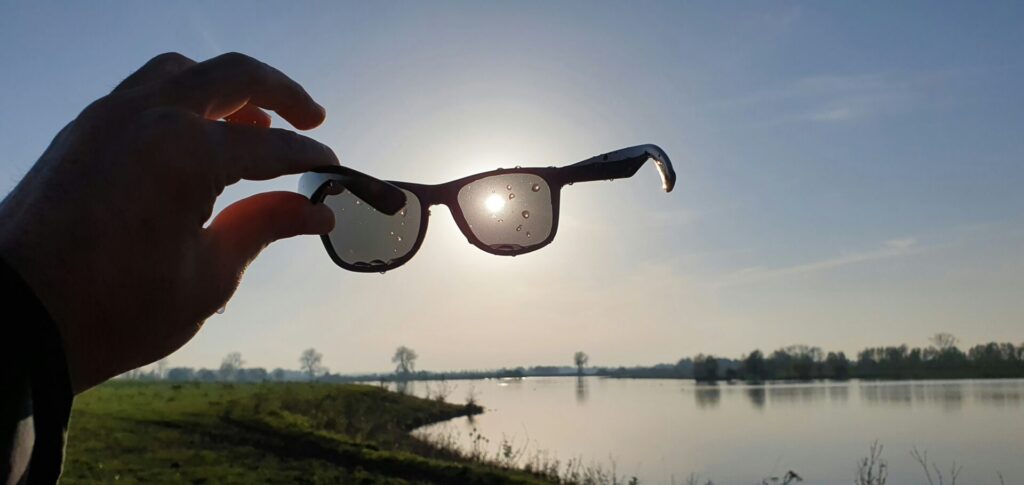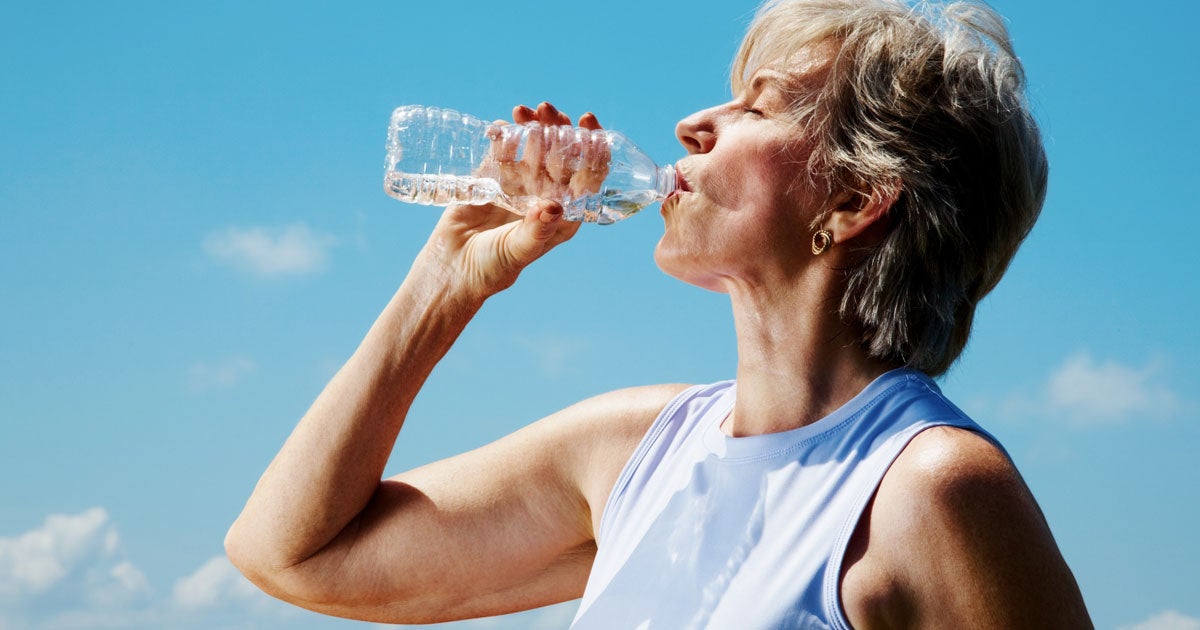Updated 16th July 2025.
“I always wear a hat outside to protect my healing scar.” – Karen.
Most people welcome the heat. However, for many people with a brain injury, hot weather can cause problems and make it harder to manage the effects of their injury. Every task will be a bit more demanding when they’re hot.
Why hot weather feels harder after a brain injury
A brain injury can sometimes cause problems with temperature regulation.
It’s like the body’s thermostat is compromised, so the signals the brain would normally send to the body to help cool it down don’t work as well. This makes it harder for survivors to control their body temperature.
They may feel too hot or too cold, or fluctuate between the two. Other symptoms, such as fatigue and cognitive problems may be exacerbated in hot weather.
Being thirsty is a warning sign, especially during the summer heat
Marie Finch, our Neuro Rehab Lead who runs the Living with Brain Injury courses and Community Support Groups, explains:
“Our clients often report more than just discomfort in hot weather. They may feel confused, lack energy and struggle with balance and visual problems.
It is more important than ever to set reminders to drink water regularly and not wait until you are thirsty. Being thirsty is a sign that you are already dehydrated.”

Marie is part of the Headway Thames Valley Neuro-Rehab Service and supports our clients with their communication needs
We’re proud to have a full multidisciplinary team of specialists supporting our clients every day. Meet the Headway Thames Valley team.
How to manage hot weather when living with a brain injury
- Keep hydrated:
Make sure to hydrate yourself throughout the day as it is important to keep your fluid levels up. Keep a water bottle with you and try to avoid drinking too much alcohol and caffeine as these increase dehydration.
- Avoid going out at the hottest time of the day:
The sun is at its hottest between 11 am and 3 pm. So, try and avoid being out in direct sunlight by scheduling your outdoor activities later on in the day.
- Use cooling aids:
Electric fans, ice packs, cool gel pillows and wet cloths are your best friend!

Dark sunglasses can help!
- Wear sunglasses:
Many brain injury survivors struggle with light sensitivity and headaches, which may be exacerbated in bright sunlight. Wearing dark sunglasses may help relieve the symptoms of light sensitivity.
- Look after your skin:
Your skin can be very vulnerable during hot weather. Make sure to wear sunscreen with an SPF of at least 30.
- Check your medication:
Some medications make your skin more sensitive or cause temperature regulation issues. Check the possible side effects in the information leaflet and speak to your doctor about the potential consequences of your medication. And don’t forget to store them at the recommended temperature!
Make sure to check in on each other and look after yourselves. Those with pre-existing health conditions may be particularly vulnerable.
Client stories
Read Lucy’s, Leigh’s and Hannah’s stories to learn about their journeys to recovery after a brain injury.
About Us
We are a charity that supports local people helping to improve life after brain injury. We work with adults of all ages, providing help through a range of services and support. Whether it’s at our Centre in Henley-on-Thames, or through our courses and groups, we are dedicated to making a positive impact.
Follow us
Keep up to date with our events and news on our channels: Bluesky, Instagram, LinkedIn, Facebook or X.
